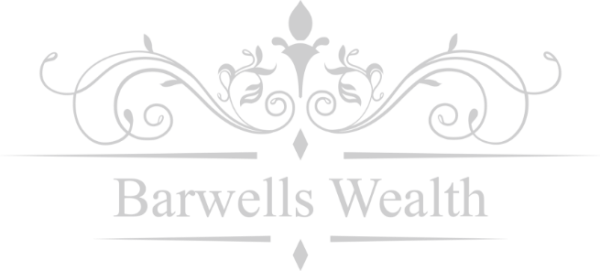
The new tax year begins on 6 April, bringing with it the reset of several of your personal and business allowances and exemptions.
So, as we approach the start of 2025/26, now is your last opportunity to review your situation and make full use of all your tax-efficient saving and investing opportunities for 2024/25.
Taking action now can help you optimise your allowances and minimise your liabilities before the current tax year ends.
Read on to discover five allowances and exemptions to maximise before 6 April.
1. Pension Annual Allowance
Each tax year, you have an Annual Allowance that sets a limit on the amount you can contribute to your pension without facing a tax charge.
For most people in 2024/25, the Annual Allowance is £60,000 or 100% of your earnings, whichever is lower. However, your Annual Allowance may be reduced to as little as £10,000 if your income exceeds a certain level or you have flexibly accessed your pension.
If you haven’t used your full Annual Allowance in previous years, you can backdate it up to three tax years. This means you can carry forward any unused Annual Allowance from 2021/22 onwards, as long as you do it before 6 April.
Your pension contributions typically receive tax relief at your marginal rate of Income Tax. The first 20% is applied automatically, and if you’re a higher- or additional-rate taxpayer you can claim further relief by completing a self-assessment tax return.
Not only do your contributions receive tax relief, but any interest or returns you earn are also tax-free, making pensions one of the most tax-efficient ways to invest in your future.
So, by maximising your pension contributions before the deadline, you can take full advantage of the benefits available to you.
2. ISA allowance
ISAs are a tax-efficient way to save and invest your money, offering tax-free interest and returns on your savings and investments.
Every year, the amount you can contribute to your ISAs is limited by the ISA allowance, which stands at £20,000 in 2024/25. Some individual limits and rules apply to difference ISA accounts.
There are several different types of ISA, and the ones you choose to pay into will depend on what you want to use the money for.
For instance, Cash ISAs offer guaranteed interest payments and may be more suitable for your short-term goals. Stocks and Shares ISAs, on the other hand, can go up as well as down, but they typically offer greater growth potential over the long term. A recent report by Unbiased found that in the last 10 years, the average annual return on Stocks and Shares ISAs has been 9.64% compared to 1.21% for Cash ISAs.
In addition to your personal ISA allowance, you can also invest up to £9,000 a year into a Junior ISA (JISA) on behalf of a child.
3. Gifting exemption
Gifting during your lifetime is an effective way to reduce the future Inheritance Tax (IHT) burden on your estate. Not only does it allow you to support your beneficiaries sooner, but it also helps lower the value of your taxable estate for the future.
The annual gifting exemption lets you give up to a certain amount each tax year without the gift falling under the scope of IHT.
For 2024/25, the exemption is capped at £3,000. If you didn’t use your exemption in the previous tax year, you can carry it forward.
Any gift that exceeds this amount is known as a “potentially exempt transfer” (PET) and could be caught in the IHT net if you pass away within seven years.
By giving gifts now, you can minimise the IHT liability on your estate and pass on more of your wealth to your loved ones efficiently.
4. Capital Gains Tax Annual Exempt Amount
Capital Gains Tax (CGT) is a tax on the profits you make from selling certain assets, and the CGT Annual Exempt Amount lets you make a limited amount of gains before you have to pay it.
For the 2024/25 tax year, the Annual Exempt Amount is £3,000.
If you’re planning to sell an asset that could be subject to CGT, timing the sale to take advantage of this exemption can help to reduce your tax liability.
Additionally, any assets transferred to your spouse are exempt from CGT. So, if your partner hasn’t fully used their Annual Exempt Amount for the current tax year, it may be worth considering having them make the sale instead.
If you’re selling a significant asset that’s liable for CGT it could be a good idea to speak to a financial planner as they can help ensure your CGT bill remains as efficient as possible.
5. Dividend Allowance
If you’re a business owner or shareholder, you may receive dividend payments, which can be a valuable source of income.
The Dividend Allowance allows you to receive up to £500 in dividends without incurring Dividend Tax. Moreover, any dividends that fall within your Personal Allowance are also not liable for tax.
By strategically managing your dividend income, you can make the most of these advantages and reduce the overall tax burden on your earnings.
Get in touch
Our team of independent financial advisers in Lewes is here to help make sure you’ve optimised your efficiency for the current tax year.
To find out more, please get in touch by emailing us at financial@barwells-wealth.co.uk or by phone on 01273 086 311.
Please note
This article is for general information only and does not constitute advice. The information is aimed at retail clients only.
All information is correct at the time of writing and is subject to change in the future.
Please do not act based on anything you might read in this article. All contents are based on our understanding of HMRC legislation, which is subject to change.
The Financial Conduct Authority does not regulate estate planning or tax planning.
A pension is a long-term investment not normally accessible until 55 (57 from April 2028). The fund value may fluctuate and can go down, which would have an impact on the level of pension benefits available. Past performance is not a reliable indicator of future performance.
The value of your investments (and any income from them) can go down as well as up and you may
not get back the full amount you invested. Past performance is not a reliable indicator of future performance.
Remember that taper relief only applies to gifts in excess of the nil-rate band. It follows that, if no tax is payable on the transfer because it does not exceed the nil-rate band (after cumulation), there can be no relief.
Taper relief does not reduce the value transferred; it reduces the tax payable as a consequence of that transfer.







 Production
Production